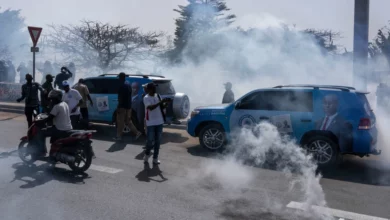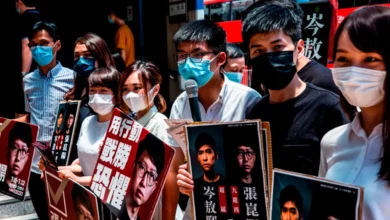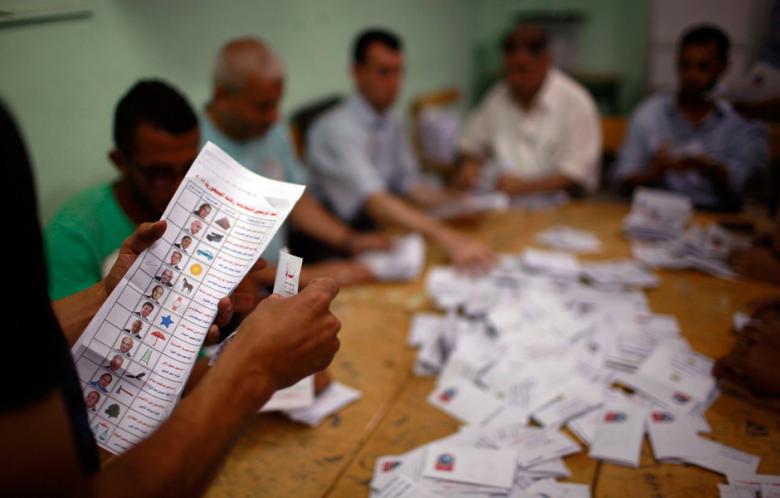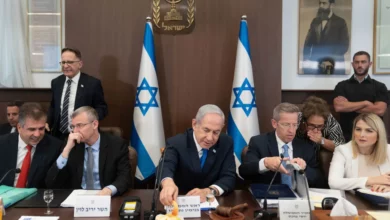A general of Egypt’s ruling council denied the military’s interest in holding power beyond the country’s transition, at a Washington DC conference organized by an American think tank on Monday.
Major General Mohamed al-Assar, Egypt’s assistant defense minister and the second-ranking member of the Supreme Council of the Armed Forces (SCAF) after Field Marshal Hussein Tantawi, answered questions at the event hosted by the United States Institute of Peace in Washington DC.
Assar heads a military delegation that meets twice a year with US officials, a habit that has taken place for the past 10 years, to review relations between the two countries. Egypt has received US military aid since the signing of the Camp David Peace Accords in 1979.
Moderated by William Quandt, a professor at the University of Virginia, the topics of discussion at the event ranged from justice to elections to the economy. Assar stressed that Egypt now belongs to the people, denouncing claims that the military is having increasing interests in holding power.
“We are not dictators,” he said of the ruling council. “We would like to expedite the transition process.”
Assar also portrayed SCAF as a body that has no real interest in political issues even though it is the de facto government of Egypt at the moment. He answered several questions by saying that the people will decide when there are elections in the fall and said that the majority of the people support the council and its actions.
SCAF came under scrutiny recently when pro-democracy groups resented slow justice in the cases of regime figures, the lingering problems within the police apparatus, and the lack of indicators for government actions that would garner social justice. Moreover, SCAF’s unclear stance toward the road to drafting a new constitution raised several questions about the role it wants to play in the country’s new polity.
Assar deflected several questions, including one about criticism of the ruling council making decisions behind closed doors and another about the refusal of international election monitors.
Mention of the April 6 Youth Movement, a pro-democracy group, drew applause from the audience, one of whom was wearing a shirt with “Down With SCAF” written on the back. Assar was moderately critical of the revolutionary youth.
On Friday, SCAF issued a statement via Facebook accusing the April 6 Youth Movement of fueling divides between the council and people. The statement was followed by a televised phone interview with a SCAF member who accused the group of holding a foreign agenda.
Assar also reiterated the army’s commitment not to fire on the Egyptian people because “the people of Egypt own its armed forces and we cannot fire on our owner,” and also claimed that this policy had been decided on before 25 January.
In the introduction to the interview, Assar praised US-Egyptian relations and the former's constant support.
“He spoke like a politician,” said Samia Harris, founder and chairman of Democracy for Egypt, who attended the event.
“He didn’t clarify the SCAF position at this time or the truth of what’s happening in Egypt,” she said. “We’re not really sure where they stand.”
Harris accused the ruling council of deliberately throwing obstacles at the revolution so that people keep scrambling to remove these obstacles instead of focusing on a more wide-ranging and comprehensive plan for the future of the country.
She also accuses the council of following in the footsteps of the old regime by attacking the April 6 Youth Movement in an attempt to divide people and turn them against each other.
“They have no legal legitimacy,” she said. “The Egyptian people did not choose them, SCAF appointed themselves.”




